Events
| Name | organizer | Where |
|---|---|---|
| MBCC “Doing Business with Mongolia seminar and Christmas Receptiom” Dec 10. 2025 London UK | MBCCI | London UK Goodman LLC |
NEWS

Nebraska man lives alone in the woods for 60 days, wins $500,000 www.omaha.com
Thursday night, 25-year-old Lincoln man Sam Larson won $500,000 on television. All he had to do was get dropped off in a remote stretch of northern Mongolia for 60 days — hunting for his own food and enduring subzero temps, extreme isolation and the threat of deadly predators. No big deal!
Larson became the longest-remaining contestant on the fifth season of the History Channel reality series “Alone,” in which competitors rough it in remote locations, going into the wild carrying only what they can fit into a backpack. The one who lasts the longest wins the prize.
The contestants are in true isolation. There is no camera crew or producers. The survivors are tasked with filming every moment.
The show was shot last summer, which, Larson said, felt like a "crummy Nebraska November" in Mongolia.
Larson had been on “Alone” previously, in the first season. For this season, he and his nine fellow contestants were previous competitors who came up short.
Mongolia was a second chance for Larson, a writer, speaker and wilderness skills instructor who lives with his wife, Sydney, and their two children in Lincoln. Their 3-year-old son is named Alaska. Their now 1-year-old daughter is named Everest. She was only seven days old when Sam left to rough it in Mongolia. His growing family ended up being his key motivation and biggest worry while he was in the woods.
“This was an opportunity for personal redemption for me,” Larson said on Thursday’s season finale. “Coming out here set the reset button on my life and gave me the chance to have my family look at me as a provider rather than someone who’s just barely getting by all the time.”
Larson — by day 60 hungry, cold, unable to have a bowel movement — was already in tears on Thursday’s finale when his wife, Sydney, snuck up behind him to reveal that he’d outlasted everyone else and won the show.
Sam fell into Sydney’s arms laugh-crying.
Sam: “I’m so happy to see you. Oh my gosh.”
Sydney: “You did it! How are you feeling?"
Sam: “Alright, who has food? Who has stinkin’ food? You have food?”
Sam told her that with the $500,000, he’s going to get a new car, one that doesn’t break down all the time.
Thursday night on his Facebook page, Larson said, “I honestly feel like ‘winner’ is a weird title. How do you ‘win’ against nature?
“You really don’t,” he continued. “You just have to live as much as you can and be thankful for the time you get to spend in the natural world.”
When he was dropped into the Mongolian wilderness, Larson brought with him a saw, an ax, a pot, ferro rod, multitool, food ration, sleeping bag, paracord and trapping wire. Larson, who is 6-foot-2, went into the woods last summer weighting 250 pounds. He lost about 50 pounds over the next 60 days.
In a Friday phone call with The World-Herald, Larson said the worst part of his 60 days in Mongolia was not knowing what was going on with his family.
"But being a dad really toughened me up," he said. "And surviving in Vancouver (on the first season of 'Alone') was a perfect warm-up for Mongolia."
He has yet to receive his prize money, Larson said. But in the meantime, thank God, his old car has yet to break down.
"It's been many, many months since I got home from Mongolia," he said. "That '98 Honda has been pulling through for us."
Larson has been “playing in the woods” for as long as he can remember.
He got the survival skills bug when he saw an arrowhead exhibit at a natural history museum. That led to trips to western Nebraska rivers like the Dismal and Middle Loup. When he couldn’t travel far, he escaped to his backyard, “playing around, lighting things on fire before my parents could find me.”
At 14, he sold a bunch of his possessions to fund a canoe expedition in northern Ontario. After high school, he studied wilderness skills in Maine, lived under an army poncho in Arizona and solo trekked the Gila Wilderness of New Mexico before coming back to Lincoln.
On Thursday’s finale, Larson said he felt angry after leaving his camp on the first season of "Alone."
“But in Mongolia,” he said, “every time I started my morning fire, I felt grateful for the fire. I was thankful for the trees and the resources I had. I was thankful for every little thing that came my way.”
...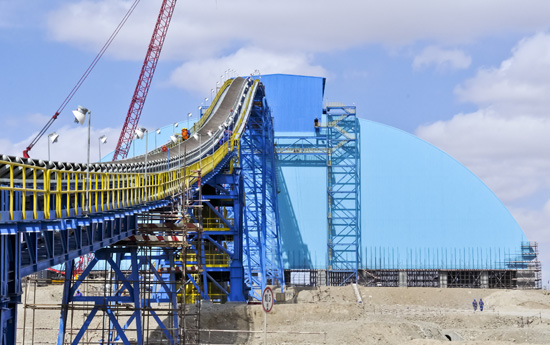
Ts.Davaasuren: OT sat idle for 5 years after power plant permit www.zgm.mn
Earlier this week, the Minister of Energy Davaasuren Tserenpil gave an interview to a local media outlet “iToim.mn” on recent scandalous deals in the energy sector, including the Power Sector Cooperation Agreement (PSCA) with Oyu Tolgoi, and expressed Mongolia’s position on them.
-Will the Government renegotiate Eastern Energy System agreement? Why was the contracted get terminated?
-The agreement violated the article 7.3 of the Investment Agreement, which states to draw electricity from the territory of Mongolia within four years of operation. In other words, the Parliament-consented agreement was hard to amend for the Cabinet without having to negotiated with the Parliament. Thus, the agreement was terminated. Arnaud Soirat, Chief executive of Copper and Diamonds of Rio Tinto Group, said some uncanny remark that the company will establish the plant if the Cabinet issues a demand to draw electricity domestically within four years. That mister still do not understand the Investment Agreement. They accepted that responsibility under the investment Agreement. They were obliged to draw electricity within four years after commencing operations due in 2017. I do not understand what this mister meant by “issuing a demand”.
Generators with over 240MW cannot be installed in Mongolia
-It seems that the location of the power station is currently under discussion?
-I am curious about that. They received a 5-years permission to build the station at the mine from our ministry in July 2012. The permit was expired in 2017. Nothing has been done within that period. They should stop playing with the Government of Mongolia. They did not lift a finger before the Southern Region Power Sector Cooperation Agreement. The 2014 Tavan Tolgoi negotiation was also the same. Therefore, the Cabinet decided to terminate the contract.
-Will the Tavan Tolgoi coal-fired power station project continue?
-The Parliament and Cabinet expressed their position that Mongolia will build the power plant based on Tavan Tolgoi residual coal deposits. It is up to them to select the three options proposed through the Investment Agreement.
-Although Oyu Tolgoi promised to draw power from Mongolia within four years after commencing operations, they violated the agreement. Will they be held accountable for that?
-The Government established a working group on some issues concerning high loan interest, tax act and violation of investment agreement. The group may report their review on that.
-What about Baganuur power station? Are there are talks on terminating the agreement? There are rumors that the Government will go under MNT 512 billion debt if the contract is terminated.
-As for the compensation, there are talks about potential risks with that amount. It does not mean we are obliged to pay them. The thing is, some compensation may come up after the contract termination. It does not mean the power station’s high technology is not incompatible to Mongolia. They are planning to install high-capacity generator that are not suitable for Mongolia’s system. Generators with over 240MW cannot be install in Mongolia. Because we manage our system by drawing 240MW power from the Russian Federation. We will not be able to manage higher generators. The contract was negotiated regardless of the incompatibility. We demanded the investors to install a system compatible with Mongolia. We did not discuss any termination of contract.
-Democratic Party’s group in the Parliament made a statement demanding the Cabinet’s dismissal. What is your position on this?
-Cabinet penalized the related officials regarding the issues around the Ministry of Road and Transport Development. The officials themselves resigned from their position, acknowledging their responsibility.
...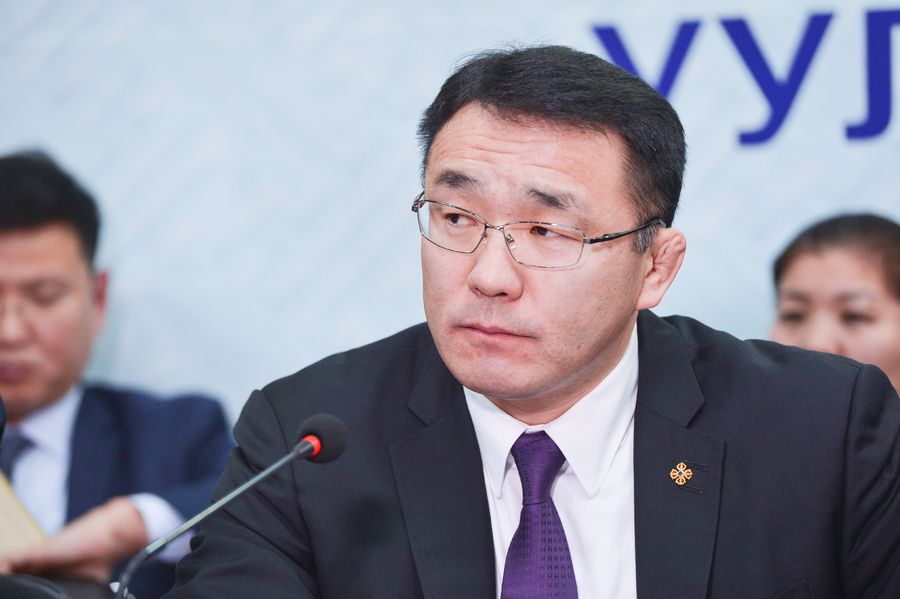
Mining Minister visiting Inner Mongolia www.montsame.mn
Ulaanbaatar/MONTSAME/ Mongolian delegation led by D. Sumiyabazar, Minister of Mining and Heavy Industry, is paying a working visit to Hohhot, Bayannur, Baotou and Ordos cities of Inner Mongolia Autonomous Region of the People’s Republic of China on August 15-18.
During the visit, the Minister D. Sumiyabazar met with Li Jiheng, Secretary of the CPC Inner Mongolia Autonomous Region's Committee, exchanging views on bilateral relations and cooperation in mining and minerals sector and further cooperation opportunities.
At the meeting, Mr. Li Jiheng said that the visit plays an important role to advance bilateral relations in the sector and asked for cooperation to expand the relations, elevating into a new level.
The working visit of Mining and Heavy Industry Minister D.Sumiyabazar is continuing.
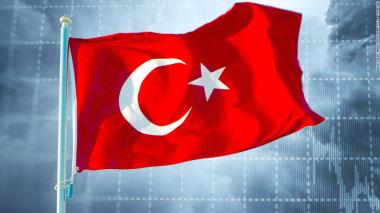
Qatar pledges $15bn of direct investments in Turkey – Ankara www.rt.com
Qatar has pledged $15 billion of direct investment in Turkey’s financial markets and banks. The news comes in a statement released on Turkey’s President’s website following his meeting with Qatar's Emir Tamim bin Hamad Al Thani.
"The Turkish President and Emir of Qatar met today [Wednesday[ in the presidential complex in Ankara. They have exchanged views on bilateral relations and regional issues, Al-Thani said that Qatar intends to directly invest $15 billion in Turkey,” said a press release after the meeting.
The Turkish lira firmed to 5.8699, from 6.04 to the US dollar after the news. The record low level of 7.2 against the greenback happened on Monday.
The Turkish officials did not provide any further information on the nature of the investments, according to AP. Erdogan's office said the pledge was made by Qatar's head, Al Thani.
The investment will be channeled into Turkish financial markets and banks, a government source told Reuters.
The Turkish economy has recently been hit by a record depreciation in the national currency lira. On Friday, US President Donald Trump doubled tariffs on aluminium and steel from Turkey in response to the detention of a US citizen. American pastor Andrew Brunson is being held on terrorism charges in Turkey, facing up to 35 years in prison for his alleged role in a failed coup in 2016.
In response, Erdogan announced boycott of US electronic devices, including Apple iPhones. Turkey has also hiked tariffs on US goods such as tobacco, alcohol, cars, cosmetics and others.
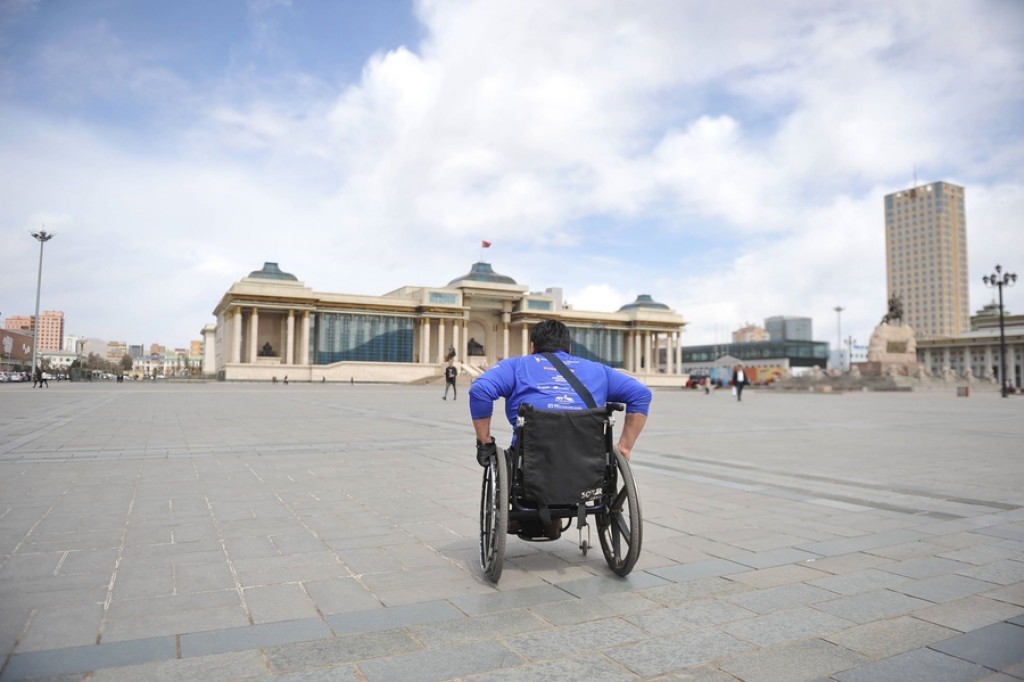
General Agency for Development of Persons with Disabilities established www.montsame.mn
Ulaanbaatar /MONTSAME/ The Cabinet issued a resolution to establish the Implementing Agency of the Government – General Agency for Development of Persons with Disabilities (PWD). Human resource of the agency will be formed in a way of transferring 35 employees from Restoration, Training and Production Center to state administrative service, changing job functions and transferring budget as well.
Specialists in charge of issues of PWD at aimag and districts in Labor and Welfare Departments will undertake duty of the agency in aimags and districts and two job positions will be added in the agency and run its activity at national level.
As of 2017, there are 103.630 people with disabilities in Mongolia or 3.3 percent of total population. 28 percent of PWD aged between 15-59 are employed.
The General Agency for Development of Persons with Disabilities will work on ensuring implementation of the Convention on the Rights of Persons with Disabilities, Law on the Rights of Persons with Disabilities and relevant laws and resolutions, inter-sectorial correspondence, supporting and promoting development and social participation of PWD as well as developing services for community based development of them and changing public understanding and attitude on disability.
B.Batchimeg

China Evergrande invests in project to build world's fastest supercomputer www.reuters.com
HONG KONG (Reuters) - Property developer China Evergrande Group on Thursday said it will invest 1.65 billion yuan ($239.53 million) into six high-tech projects by the Chinese Academy of Sciences, including one aimed at building the world’s fastest supercomputer.
The other projects involve artificial intelligence, surgical robotics, unpiloted aircraft, health engineering and graphene. Together, the six projects have a current value of 4.6 billion yuan, Evergrande said in a statement.
The investment is the first from a total 100 billion yuan that Evergrande agreed with the academy to inject into high-tech sectors earlier this year.
Evergrande Chairman Hui Ka Yan first announced in March that the property developer would explore opportunities in high-tech sectors to drive growth.
It set up a subsidiary in April focusing on high-tech agriculture.
($1 = 6.8885 Chinese yuan renminbi)
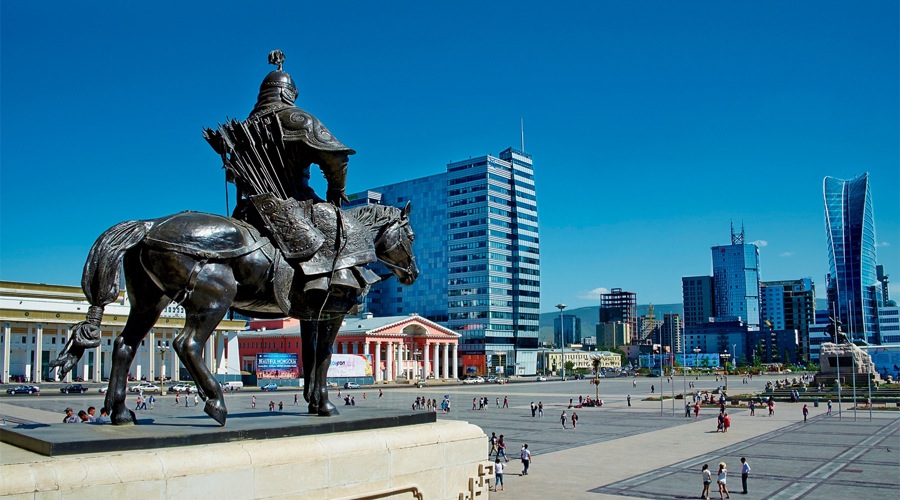
Economy grows 6.3 percent on the back of consumer sector www.zgm.mn
National Statistics Office released the preliminary results of social and economic situations of 2017. Driven by the upswing in tax revenue, goods and services, the economy grew to MNT 8 trillion, a 6.3 percent growth. In details, service sector grew 5.8 percent to MNT 184.9 billion, wholesales and retail - 9 percent to MNT 73.7 billion, net taxes on products - 21.4 percent to MNT 192.1 billion. The monthly average income of household jumped 13.7 percent year-over-year, to MNT 1.1 million. Key drivers were the average salary growth of MNT 46.4 thousand and MNT 28.5 thousand or 41.7 percent raise in income from non-agricultural production and services. The household expenditures averaged at MNT 1.1 million, which is MNT 96.7 thousand or 9.7 percent higher than the same period of last year. This was driven by an increase of MNT 73.1 thousand or 9.7 percent in non-food expenses and services and other expenditure. In the first 7 months of 2018, total equilibrated revenue and grants of the Government Budget reached MNT 5 trillion, and total expenditure and net lending amounted to MNT 4.8 trillion. As such, the budget balance totalled MNT 291.3 billion in surplus. Another highlight was the 33 percent surge (year-over-year) in tax revenue, reaching MNT 4.5 trillion. Specifically, value added tax revenue hiked 34.1 percent, income tax - 31.5 percent, excise taxes - 68.5 percent, social welfare income - 20.5 percent, others - 33 percent and revenue from foreign activities jumped 39 percent. The State revenue accounted for 79.6 percent of tax revenue, 10.3 percent of non-tax revenue, 7.3 percent of the future heritage fund and 2.8 percent of stabilization fund. In the first 7 months of 2018, total expenditure and net lending of the General Government Budget amounted to MNT 4.8 trillion, increased by MNT 271.9 billion or 6.1 percent compared to the same period of the previous year. The General Government expenditure and net lending accounted for 84.3 percent of current expenditure, 11.8 percent of capital expenditure and 3.9 percent of net lending. In addition, inflation increased by 5.5 percent in July.
...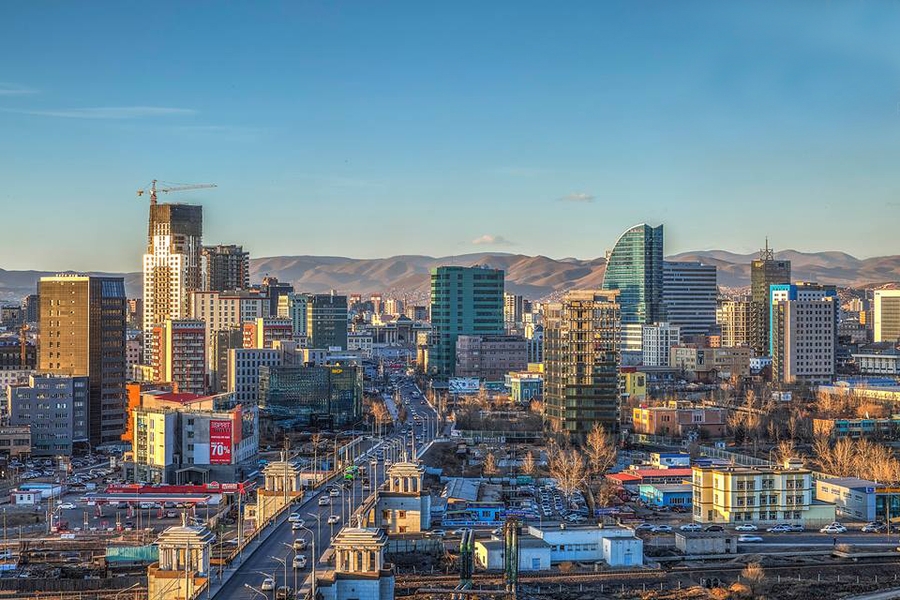
Salary discussion may return as Labor Minister hints of a draft www.zgm.mn
Cabinet held its regular session yesterday and approved the appointment of Khaltar Luvsan, Vice President of Ulaanbaatar Railway Joint Stock Venture, as the Deputy Minister of Road and Transport Development. The session also touched upon the establishment of Development center for the Disabled, electoral budget of the repolling and national program on children’s dental care. After the session, Minister of Labor and Social Protection Chinzorig Sodnom informed that he is planning to organize a trilateral meeting with the Government and Confederation of Mongolian Trade Unions. He then highlighted that he will be presenting a bill on salary raise to the Cabinet next week.
GOVT TO BOOST EMPLOYMENT BY TRAINING THE DISABLED
At the initiative of the Prime Minister Khurelsukh Ukhnaa, the Cabinet issued a resolution to establish a Development Center for the Disabled (DCD). In doing so, 35 employees of Rehabilitation and Training Center will be transferred to the the DCD without having to allocate extra financing from the State Budget. According to statistics, 103,630 people, which equals 3.3 percent of the entire population, is currently disabled and 42 percent of households that have a disabled member are poverty-struck. Only 28 percent of disabled people between the age of 15 and 59 are employed and 43 percent of 6-18 years old children are illiterate.
MNT 390 MILLION ALLOCATED FOR REPOLL
Cabinet approved to allocate MNT 390 million for the repolling in the 42nd electoral district at the session. The electoral budget will be financed from the Cabinet’s reserve fund, of which MNT 228.1 million will be spent on the Parliamentary repolling, while the remaining MNT 162.5 million has been allocated for the reelections of Citizens’ Representative Khural of Bulgan, Dornogobi, Dornod, Sukhbaatar, Orkhon, Khentii, Zavkha and Gobi-Altai aimags according to the Cabinet.
NATIONAL PROGRAM ON CHILDREN'S DENTAL HYGIENE
Healthy Teeth - Healthy Children program to be implemented nationwide in 2018-2022. The program financing of MNT 37 billion is expected to be allocated from the State Budget, foreign aid, investment, public, private sector partnerships and other sources. By maintaining sustainable financing and developing cooperation of multiple sectors, the program aims to improve the quality of children’s dental care service and reduce dental prevalence of children by 30 percent and cavity by four points. The decision is related to the increased dental problems among children. A study conducted in 2011 shows that around 87-96 percent of 5-6 years old children 65.3 percent of 12 year olds and 67.5 percent of adults had cavity and experts perceive the number has increased in recent years. Presently, a total of 1049 dental clinics operate throughout the country, of which 77 percent of them are state-owned. The Cabinet highlighted to supply necessary equipment, workforces to local clinics and support welfare and insurance for the public
...
Rio Tinto closer to selling $6bn stake in Iron Ore of Canada www.mining.com
Rio Tinto (LON, ASX, NYSE:RIO), the world’s second-biggest producer of iron ore, is closer than ever to selling its $6 billion-stake in Iron Ore Company of Canada (IOC), as it hired investment bank Credit Suisse.
Likely bidders include ArcelorMittal and Teck Resources.
The miner, which owns 58.7% of the Canadian producer, is said to have been already approached by ArcelorMittal and Teck Resources, Canada's largest diversified miner, Sky News reported.
The alleged sale comes a time when iron ore prices have rebounded — now trading around $68 per tonne.
This is not the first time Rio attempts to offload its interest in IOC. In 2013, then chief executive Sam Walsh tried, but failed to sell it as part of a massive assets disposals the company went through at a time of slumping iron ore prices.
The world’s second largest miner is said to also be exploring a public listing on the Toronto Stock Exchange of IOC, one of Canada’s largest iron ore producers, which last year had revenues of $1.9 billion in 2017.
IOC operates a mine, concentrator and a pelletizing plant in Newfoundland and Labrador, as well as port facilities located in Sept-Îles, in the province of Quebec. It also runs a 418-kilometre railroad that links the mine to the port.

Number of HIV-infections in Mongolia rises to 264 www.chinadaily.com.cn
The number of HIV-positive people rose to 264 in Mongolia after two new cases were registered last month, the National Statistical Office said in a report Wednesday.
More than half of the HIV-infected are people between 20 and 44 years old. About 99 percent of the infections were sexually transmitted, according to the report.
The first case of HIV infection in Mongolia was recorded in 1992. Since then, 40 people have died of AIDS in this East Asia country with a population of more than 3 million.
In the first seven months of this year, there were a total of 24,928 cases of infectious diseases reported in Mongolia, down by 12.8 percent from a year ago, the report said.
- «
- 1
- 2
- 3
- 4
- 5
- 6
- 7
- 8
- 9
- 10
- 11
- 12
- 13
- 14
- 15
- 16
- 17
- 18
- 19
- 20
- 21
- 22
- 23
- 24
- 25
- 26
- 27
- 28
- 29
- 30
- 31
- 32
- 33
- 34
- 35
- 36
- 37
- 38
- 39
- 40
- 41
- 42
- 43
- 44
- 45
- 46
- 47
- 48
- 49
- 50
- 51
- 52
- 53
- 54
- 55
- 56
- 57
- 58
- 59
- 60
- 61
- 62
- 63
- 64
- 65
- 66
- 67
- 68
- 69
- 70
- 71
- 72
- 73
- 74
- 75
- 76
- 77
- 78
- 79
- 80
- 81
- 82
- 83
- 84
- 85
- 86
- 87
- 88
- 89
- 90
- 91
- 92
- 93
- 94
- 95
- 96
- 97
- 98
- 99
- 100
- 101
- 102
- 103
- 104
- 105
- 106
- 107
- 108
- 109
- 110
- 111
- 112
- 113
- 114
- 115
- 116
- 117
- 118
- 119
- 120
- 121
- 122
- 123
- 124
- 125
- 126
- 127
- 128
- 129
- 130
- 131
- 132
- 133
- 134
- 135
- 136
- 137
- 138
- 139
- 140
- 141
- 142
- 143
- 144
- 145
- 146
- 147
- 148
- 149
- 150
- 151
- 152
- 153
- 154
- 155
- 156
- 157
- 158
- 159
- 160
- 161
- 162
- 163
- 164
- 165
- 166
- 167
- 168
- 169
- 170
- 171
- 172
- 173
- 174
- 175
- 176
- 177
- 178
- 179
- 180
- 181
- 182
- 183
- 184
- 185
- 186
- 187
- 188
- 189
- 190
- 191
- 192
- 193
- 194
- 195
- 196
- 197
- 198
- 199
- 200
- 201
- 202
- 203
- 204
- 205
- 206
- 207
- 208
- 209
- 210
- 211
- 212
- 213
- 214
- 215
- 216
- 217
- 218
- 219
- 220
- 221
- 222
- 223
- 224
- 225
- 226
- 227
- 228
- 229
- 230
- 231
- 232
- 233
- 234
- 235
- 236
- 237
- 238
- 239
- 240
- 241
- 242
- 243
- 244
- 245
- 246
- 247
- 248
- 249
- 250
- 251
- 252
- 253
- 254
- 255
- 256
- 257
- 258
- 259
- 260
- 261
- 262
- 263
- 264
- 265
- 266
- 267
- 268
- 269
- 270
- 271
- 272
- 273
- 274
- 275
- 276
- 277
- 278
- 279
- 280
- 281
- 282
- 283
- 284
- 285
- 286
- 287
- 288
- 289
- 290
- 291
- 292
- 293
- 294
- 295
- 296
- 297
- 298
- 299
- 300
- 301
- 302
- 303
- 304
- 305
- 306
- 307
- 308
- 309
- 310
- 311
- 312
- 313
- 314
- 315
- 316
- 317
- 318
- 319
- 320
- 321
- 322
- 323
- 324
- 325
- 326
- 327
- 328
- 329
- 330
- 331
- 332
- 333
- 334
- 335
- 336
- 337
- 338
- 339
- 340
- 341
- 342
- 343
- 344
- 345
- 346
- 347
- 348
- 349
- 350
- 351
- 352
- 353
- 354
- 355
- 356
- 357
- 358
- 359
- 360
- 361
- 362
- 363
- 364
- 365
- 366
- 367
- 368
- 369
- 370
- 371
- 372
- 373
- 374
- 375
- 376
- 377
- 378
- 379
- 380
- 381
- 382
- 383
- 384
- 385
- 386
- 387
- 388
- 389
- 390
- 391
- 392
- 393
- 394
- 395
- 396
- 397
- 398
- 399
- 400
- 401
- 402
- 403
- 404
- 405
- 406
- 407
- 408
- 409
- 410
- 411
- 412
- 413
- 414
- 415
- 416
- 417
- 418
- 419
- 420
- 421
- 422
- 423
- 424
- 425
- 426
- 427
- 428
- 429
- 430
- 431
- 432
- 433
- 434
- 435
- 436
- 437
- 438
- 439
- 440
- 441
- 442
- 443
- 444
- 445
- 446
- 447
- 448
- 449
- 450
- 451
- 452
- 453
- 454
- 455
- 456
- 457
- 458
- 459
- 460
- 461
- 462
- 463
- 464
- 465
- 466
- 467
- 468
- 469
- 470
- 471
- 472
- 473
- 474
- 475
- 476
- 477
- 478
- 479
- 480
- 481
- 482
- 483
- 484
- 485
- 486
- 487
- 488
- 489
- 490
- 491
- 492
- 493
- 494
- 495
- 496
- 497
- 498
- 499
- 500
- 501
- 502
- 503
- 504
- 505
- 506
- 507
- 508
- 509
- 510
- 511
- 512
- 513
- 514
- 515
- 516
- 517
- 518
- 519
- 520
- 521
- 522
- 523
- 524
- 525
- 526
- 527
- 528
- 529
- 530
- 531
- 532
- 533
- 534
- 535
- 536
- 537
- 538
- 539
- 540
- 541
- 542
- 543
- 544
- 545
- 546
- 547
- 548
- 549
- 550
- 551
- 552
- 553
- 554
- 555
- 556
- 557
- 558
- 559
- 560
- 561
- 562
- 563
- 564
- 565
- 566
- 567
- 568
- 569
- 570
- 571
- 572
- 573
- 574
- 575
- 576
- 577
- 578
- 579
- 580
- 581
- 582
- 583
- 584
- 585
- 586
- 587
- 588
- 589
- 590
- 591
- 592
- 593
- 594
- 595
- 596
- 597
- 598
- 599
- 600
- 601
- 602
- 603
- 604
- 605
- 606
- 607
- 608
- 609
- 610
- 611
- 612
- 613
- 614
- 615
- 616
- 617
- 618
- 619
- 620
- 621
- 622
- 623
- 624
- 625
- 626
- 627
- 628
- 629
- 630
- 631
- 632
- 633
- 634
- 635
- 636
- 637
- 638
- 639
- 640
- 641
- 642
- 643
- 644
- 645
- 646
- 647
- 648
- 649
- 650
- 651
- 652
- 653
- 654
- 655
- 656
- 657
- 658
- 659
- 660
- 661
- 662
- 663
- 664
- 665
- 666
- 667
- 668
- 669
- 670
- 671
- 672
- 673
- 674
- 675
- 676
- 677
- 678
- 679
- 680
- 681
- 682
- 683
- 684
- 685
- 686
- 687
- 688
- 689
- 690
- 691
- 692
- 693
- 694
- 695
- 696
- 697
- 698
- 699
- 700
- 701
- 702
- 703
- 704
- 705
- 706
- 707
- 708
- 709
- 710
- 711
- 712
- 713
- 714
- 715
- 716
- 717
- 718
- 719
- 720
- 721
- 722
- 723
- 724
- 725
- 726
- 727
- 728
- 729
- 730
- 731
- 732
- 733
- 734
- 735
- 736
- 737
- 738
- 739
- 740
- 741
- 742
- 743
- 744
- 745
- 746
- 747
- 748
- 749
- 750
- 751
- 752
- 753
- 754
- 755
- 756
- 757
- 758
- 759
- 760
- 761
- 762
- 763
- 764
- 765
- 766
- 767
- 768
- 769
- 770
- 771
- 772
- 773
- 774
- 775
- 776
- 777
- 778
- 779
- 780
- 781
- 782
- 783
- 784
- 785
- 786
- 787
- 788
- 789
- 790
- 791
- 792
- 793
- 794
- 795
- 796
- 797
- 798
- 799
- 800
- 801
- 802
- 803
- 804
- 805
- 806
- 807
- 808
- 809
- 810
- 811
- 812
- 813
- 814
- 815
- 816
- 817
- 818
- 819
- 820
- 821
- 822
- 823
- 824
- 825
- 826
- 827
- 828
- 829
- 830
- 831
- 832
- 833
- 834
- 835
- 836
- 837
- 838
- 839
- 840
- 841
- 842
- 843
- 844
- 845
- 846
- 847
- 848
- 849
- 850
- 851
- 852
- 853
- 854
- 855
- 856
- 857
- 858
- 859
- 860
- 861
- 862
- 863
- 864
- 865
- 866
- 867
- 868
- 869
- 870
- 871
- 872
- 873
- 874
- 875
- 876
- 877
- 878
- 879
- 880
- 881
- 882
- 883
- 884
- 885
- 886
- 887
- 888
- 889
- 890
- 891
- 892
- 893
- 894
- 895
- 896
- 897
- 898
- 899
- 900
- 901
- 902
- 903
- 904
- 905
- 906
- 907
- 908
- 909
- 910
- 911
- 912
- 913
- 914
- 915
- 916
- 917
- 918
- 919
- 920
- 921
- 922
- 923
- 924
- 925
- 926
- 927
- 928
- 929
- 930
- 931
- 932
- 933
- 934
- 935
- 936
- 937
- 938
- 939
- 940
- 941
- 942
- 943
- 944
- 945
- 946
- 947
- 948
- 949
- 950
- 951
- 952
- 953
- 954
- 955
- 956
- 957
- 958
- 959
- 960
- 961
- 962
- 963
- 964
- 965
- 966
- 967
- 968
- 969
- 970
- 971
- 972
- 973
- 974
- 975
- 976
- 977
- 978
- 979
- 980
- 981
- 982
- 983
- 984
- 985
- 986
- 987
- 988
- 989
- 990
- 991
- 992
- 993
- 994
- 995
- 996
- 997
- 998
- 999
- 1000
- 1001
- 1002
- 1003
- 1004
- 1005
- 1006
- 1007
- 1008
- 1009
- 1010
- 1011
- 1012
- 1013
- 1014
- 1015
- 1016
- 1017
- 1018
- 1019
- 1020
- 1021
- 1022
- 1023
- 1024
- 1025
- 1026
- 1027
- 1028
- 1029
- 1030
- 1031
- 1032
- 1033
- 1034
- 1035
- 1036
- 1037
- 1038
- 1039
- 1040
- 1041
- 1042
- 1043
- 1044
- 1045
- 1046
- 1047
- 1048
- 1049
- 1050
- 1051
- 1052
- 1053
- 1054
- 1055
- 1056
- 1057
- 1058
- 1059
- 1060
- 1061
- 1062
- 1063
- 1064
- 1065
- 1066
- 1067
- 1068
- 1069
- 1070
- 1071
- 1072
- 1073
- 1074
- 1075
- 1076
- 1077
- 1078
- 1079
- 1080
- 1081
- 1082
- 1083
- 1084
- 1085
- 1086
- 1087
- 1088
- 1089
- 1090
- 1091
- 1092
- 1093
- 1094
- 1095
- 1096
- 1097
- 1098
- 1099
- 1100
- 1101
- 1102
- 1103
- 1104
- 1105
- 1106
- 1107
- 1108
- 1109
- 1110
- 1111
- 1112
- 1113
- 1114
- 1115
- 1116
- 1117
- 1118
- 1119
- 1120
- 1121
- 1122
- 1123
- 1124
- 1125
- 1126
- 1127
- 1128
- 1129
- 1130
- 1131
- 1132
- 1133
- 1134
- 1135
- 1136
- 1137
- 1138
- 1139
- 1140
- 1141
- 1142
- 1143
- 1144
- 1145
- 1146
- 1147
- 1148
- 1149
- 1150
- 1151
- 1152
- 1153
- 1154
- 1155
- 1156
- 1157
- 1158
- 1159
- 1160
- 1161
- 1162
- 1163
- 1164
- 1165
- 1166
- 1167
- 1168
- 1169
- 1170
- 1171
- 1172
- 1173
- 1174
- 1175
- 1176
- 1177
- 1178
- 1179
- 1180
- 1181
- 1182
- 1183
- 1184
- 1185
- 1186
- 1187
- 1188
- 1189
- 1190
- 1191
- 1192
- 1193
- 1194
- 1195
- 1196
- 1197
- 1198
- 1199
- 1200
- 1201
- 1202
- 1203
- 1204
- 1205
- 1206
- 1207
- 1208
- 1209
- 1210
- 1211
- 1212
- 1213
- 1214
- 1215
- 1216
- 1217
- 1218
- 1219
- 1220
- 1221
- 1222
- 1223
- 1224
- 1225
- 1226
- 1227
- 1228
- 1229
- 1230
- 1231
- 1232
- 1233
- 1234
- 1235
- 1236
- 1237
- 1238
- 1239
- 1240
- 1241
- 1242
- 1243
- 1244
- 1245
- 1246
- 1247
- 1248
- 1249
- 1250
- 1251
- 1252
- 1253
- 1254
- 1255
- 1256
- 1257
- 1258
- 1259
- 1260
- 1261
- 1262
- 1263
- 1264
- 1265
- 1266
- 1267
- 1268
- 1269
- 1270
- 1271
- 1272
- 1273
- 1274
- 1275
- 1276
- 1277
- 1278
- 1279
- 1280
- 1281
- 1282
- 1283
- 1284
- 1285
- 1286
- 1287
- 1288
- 1289
- 1290
- 1291
- 1292
- 1293
- 1294
- 1295
- 1296
- 1297
- 1298
- 1299
- 1300
- 1301
- 1302
- 1303
- 1304
- 1305
- 1306
- 1307
- 1308
- 1309
- 1310
- 1311
- 1312
- 1313
- 1314
- 1315
- 1316
- 1317
- 1318
- 1319
- 1320
- 1321
- 1322
- 1323
- 1324
- 1325
- 1326
- 1327
- 1328
- 1329
- 1330
- 1331
- 1332
- 1333
- 1334
- 1335
- 1336
- 1337
- 1338
- 1339
- 1340
- 1341
- 1342
- 1343
- 1344
- 1345
- 1346
- 1347
- 1348
- 1349
- 1350
- 1351
- 1352
- 1353
- 1354
- 1355
- 1356
- 1357
- 1358
- 1359
- 1360
- 1361
- 1362
- 1363
- 1364
- 1365
- 1366
- 1367
- 1368
- 1369
- 1370
- 1371
- 1372
- 1373
- 1374
- 1375
- 1376
- 1377
- 1378
- 1379
- 1380
- 1381
- 1382
- 1383
- 1384
- 1385
- 1386
- 1387
- 1388
- 1389
- 1390
- 1391
- 1392
- 1393
- 1394
- 1395
- 1396
- 1397
- 1398
- 1399
- 1400
- 1401
- 1402
- 1403
- 1404
- 1405
- 1406
- 1407
- 1408
- 1409
- 1410
- 1411
- 1412
- 1413
- 1414
- 1415
- 1416
- 1417
- 1418
- 1419
- 1420
- 1421
- 1422
- 1423
- 1424
- 1425
- 1426
- 1427
- 1428
- 1429
- 1430
- 1431
- 1432
- 1433
- 1434
- 1435
- 1436
- 1437
- 1438
- 1439
- 1440
- 1441
- 1442
- 1443
- 1444
- 1445
- 1446
- 1447
- 1448
- 1449
- 1450
- 1451
- 1452
- 1453
- 1454
- 1455
- 1456
- 1457
- 1458
- 1459
- 1460
- 1461
- 1462
- 1463
- 1464
- 1465
- 1466
- 1467
- 1468
- 1469
- 1470
- 1471
- 1472
- 1473
- 1474
- 1475
- 1476
- 1477
- 1478
- 1479
- 1480
- 1481
- 1482
- 1483
- 1484
- 1485
- 1486
- 1487
- 1488
- 1489
- 1490
- 1491
- 1492
- 1493
- 1494
- 1495
- 1496
- 1497
- 1498
- 1499
- 1500
- 1501
- 1502
- 1503
- 1504
- 1505
- 1506
- 1507
- 1508
- 1509
- 1510
- 1511
- 1512
- 1513
- 1514
- 1515
- 1516
- 1517
- 1518
- 1519
- 1520
- 1521
- 1522
- 1523
- 1524
- 1525
- 1526
- 1527
- 1528
- 1529
- 1530
- 1531
- 1532
- 1533
- 1534
- 1535
- 1536
- 1537
- 1538
- 1539
- 1540
- 1541
- 1542
- 1543
- 1544
- 1545
- 1546
- 1547
- 1548
- 1549
- 1550
- 1551
- 1552
- 1553
- 1554
- 1555
- 1556
- 1557
- 1558
- 1559
- 1560
- 1561
- 1562
- 1563
- 1564
- 1565
- 1566
- 1567
- 1568
- 1569
- 1570
- 1571
- 1572
- 1573
- 1574
- 1575
- 1576
- 1577
- 1578
- 1579
- 1580
- 1581
- 1582
- 1583
- 1584
- 1585
- 1586
- 1587
- 1588
- 1589
- 1590
- 1591
- 1592
- 1593
- 1594
- 1595
- 1596
- 1597
- 1598
- 1599
- 1600
- 1601
- 1602
- 1603
- 1604
- 1605
- 1606
- 1607
- 1608
- 1609
- 1610
- 1611
- 1612
- 1613
- 1614
- 1615
- 1616
- 1617
- 1618
- 1619
- 1620
- 1621
- 1622
- 1623
- 1624
- 1625
- 1626
- 1627
- 1628
- 1629
- 1630
- 1631
- 1632
- 1633
- 1634
- 1635
- 1636
- 1637
- 1638
- 1639
- 1640
- 1641
- 1642
- 1643
- 1644
- 1645
- 1646
- 1647
- 1648
- 1649
- 1650
- 1651
- 1652
- 1653
- 1654
- 1655
- 1656
- 1657
- 1658
- 1659
- 1660
- 1661
- 1662
- 1663
- 1664
- 1665
- 1666
- 1667
- 1668
- 1669
- 1670
- 1671
- 1672
- 1673
- 1674
- 1675
- 1676
- 1677
- 1678
- 1679
- 1680
- 1681
- 1682
- 1683
- 1684
- 1685
- 1686
- 1687
- 1688
- 1689
- 1690
- 1691
- 1692
- 1693
- 1694
- 1695
- 1696
- 1697
- 1698
- 1699
- 1700
- 1701
- 1702
- 1703
- 1704
- 1705
- 1706
- 1707
- 1708
- 1709
- 1710
- 1711
- 1712
- 1713
- 1714
- »






